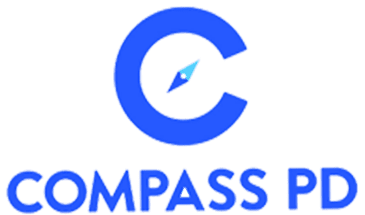Why Ongoing Professional Learning Matters: The Pitfalls of One-Day Workshops
By Dr. Carrie Hepburn
As the new school year begins, school districts nationwide often kick off professional development with a familiar ritual: the one-day workshop. Teachers gather, listen to presentations, engage in activities, and leave, hoping that this brief encounter will lead to meaningful change in their classrooms. However, the results are often disappointing. The desired impact on teaching practices and student learning rarely materializes despite the time and resources invested. Why? Because one-and-two-day workshops alone are not enough to truly support and empower educators.
The Research Speaks: One-Day Workshops Aren’t Effective
Research on professional learning is clear: one-time events do not work. Studies show that standalone professional learning sessions result in an implementation rate of only about 10% (Hanover, 2021). This means that most of what is taught during these workshops is not effectively used in the classroom, failing to make a real difference in student outcomes.
The reason is simple: learning, whether for students or educators, doesn’t happen in a vacuum. Just as we would not expect students to master a complex concept after a single lesson, we should not expect educators to transform their teaching practices after a single workshop. Learning is a journey that requires time, reflection, and, most importantly, practice—and it is a journey that educators should not have to undertake alone.
The Power of Ongoing, Job-Embedded Professional Learning
Imagine a different approach: one where professional learning is an ongoing process deeply embedded in educators’ daily work. This approach, supported by research, can drastically improve the effectiveness of professional learning. When coupled with continuous practice and coaching for a minimum of 50 hours, the implementation rate can reach 95% (Joyce & Showers, 1980). This is not just a small improvement—it is a game-changer.
This approach reflects a commitment to genuinely supporting educators. Ongoing, job-embedded professional learning involves regular opportunities for educators to engage with new ideas, apply them in their classrooms, and receive feedback and support from peers and coaches. This type of professional learning is a continuous cycle of learning, reflection, and improvement—a cycle that values and invests in each educator’s growth.
Breaking the Cycle of Ineffective Professional Development
Despite the clear benefits of ongoing professional learning, many districts continue to rely on one-day workshops because they are easier to schedule and implement. However, as district leaders committed to student success, we must ask ourselves: Is easier better? The answer is clear: No, it is not. It is time to break the cycle of ineffective professional development and embrace a model that genuinely supports and empowers educators. This means investing in ongoing, job-embedded professional learning and recognizing that meaningful change takes time.
Creating a Culture of Continuous Learning
Shifting from one-day workshops to ongoing professional learning requires a commitment to creating a culture of continuous learning. In this culture, professional development is not done to educators but with for them. This culture values educators’ expertise and recognizes them as active participants in their learning.
Creating this culture also requires district leaders to rethink resource allocation. It means investing in coaching, providing time for collaboration, and ensuring that professional learning addresses the fundamental challenges educators face in their classrooms. It is about creating a partnership with educators where their voices are heard, and their professional growth is nurtured.
The Emotional Impact of Ineffective Professional Development
Ineffective professional development can take a toll on educators. When teachers are required to attend one-day workshops that have little relevance to their work, it sends a message that their time and expertise are not valued. It is disheartening to sit through hours of training, knowing it will not make a difference in the classroom. On the other hand, meaningful, ongoing, job-embedded professional learning sends a powerful message that educators’ growth is a priority, showing that the district is invested in their success and the success of their students.
The Time is Now
The stakes are high. Our students’ success depends on our teachers’ effectiveness, which in turn depends on the quality of their professional learning (Garrett, R., Citkowicz, M. & Burr, L., 2021). It’s time for district leaders to ask: Are we doing what is easy, or are we doing what is right? Are we settling for one-day workshops, or are we committed to providing the kind of ongoing, job-embedded professional learning that genuinely makes a difference?
Change is never easy, but it is necessary. By embracing ongoing professional learning, district leaders can create a culture of continuous improvement that empowers educators and leads to better student outcomes. The time for change is now. Let us move beyond the one-day workshop and commit to professional learning that truly impacts practice—and transforms lives.
References
Darling-Hammond, L., Chung Wei, R., Andree, A., & Richardson, N.(2009). Professional learning in the learning profession: A status report on teacher development in the United States and abroad. Oxford, OH: National Staff Development Council.
Fuller, J. (2001). Effective strategies for creating change within the educational system: A three-cycle action research study. Retrieved March 2016 from http://files.eric.ed.gov/fulltext/ED453597.pdf.
Garrett, R., Citkowicz, M. & Burr, L. (2021) How Learning Forward’s Standards for Professional Learning Are Associated With Teacher Instruction and Student Achievement: A Meta-Analysis. Center on Great Teachers & Leaders at the American Institute for Research.
Joyce, B., & Showers, B. (1980). Improving in-service training: The messages from research. Educational Leadership, 37, 379-385.
